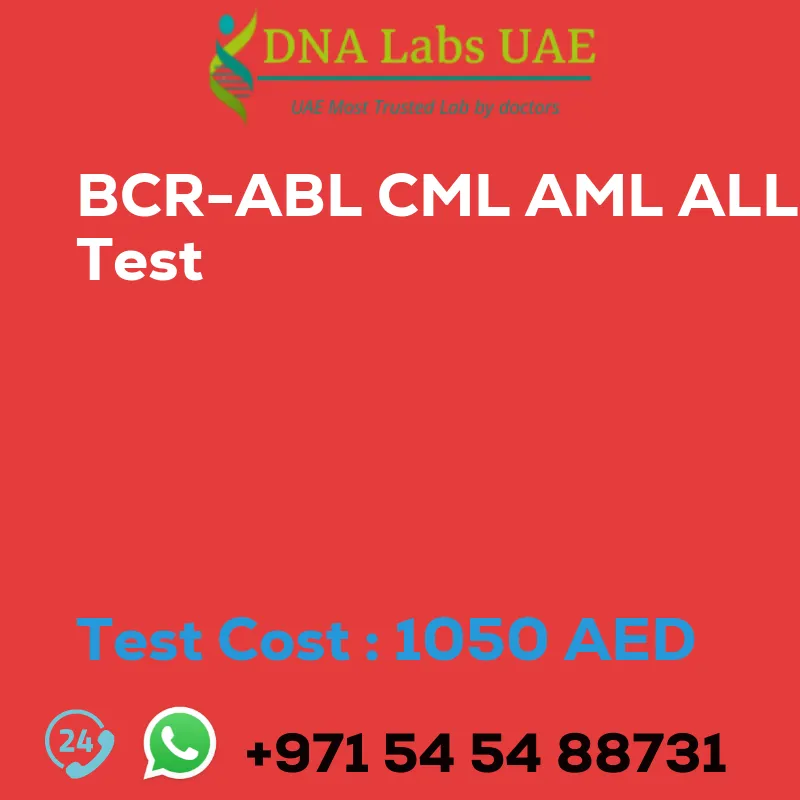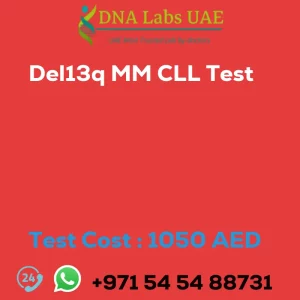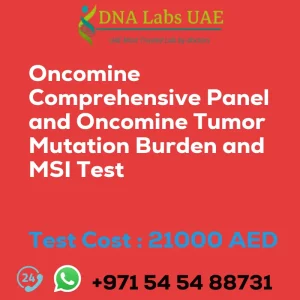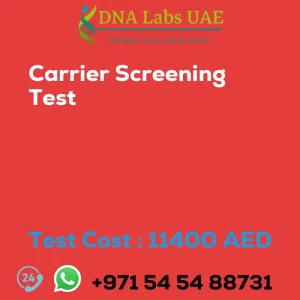BCR-ABL CML AML ALL Test
At DNA Labs UAE, we offer the BCR-ABL CML AML ALL Test at a cost of AED 1050.0. This test is used for the diagnosis of chronic myeloid leukemia (CML), acute myeloid leukemia (AML), and acute lymphoblastic leukemia (ALL).
Test Details
The BCR-ABL CML AML ALL Test is performed using a Sodium Heparin Vacutainer (2ml) and requires a sample of bone marrow or peripheral blood. The test is conducted using the FISH method and falls under the category of genetics.
Doctor and Test Department
This test is conducted by our experienced oncologists in the Test Department of DNA Labs UAE.
Pre Test Information
A Doctor’s prescription is required for the BCR-ABL CML AML ALL Test. However, please note that the prescription is not applicable for surgery and pregnancy cases or individuals planning to travel abroad.
Symptoms and Diagnosis
The BCR-ABL fusion gene, resulting from a chromosomal translocation between the BCR gene on chromosome 22 and the ABL gene on chromosome 9, is commonly found in certain types of leukemia. In CML, the BCR-ABL fusion gene leads to the production of a tyrosine kinase protein called BCR-ABL, which causes uncontrolled cell growth and proliferation of myeloid cells. This leads to the accumulation of immature white blood cells in the bone marrow and their release into the bloodstream. In AML and ALL, the presence of the BCR-ABL fusion gene is less common but is associated with a poor prognosis and resistance to certain targeted therapies.
Treatment
The development of tyrosine kinase inhibitors (TKIs) such as imatinib, dasatinib, and nilotinib has revolutionized the treatment of BCR-ABL-positive leukemias. These drugs specifically target the BCR-ABL protein, inhibiting its activity and effectively controlling the growth of leukemia cells. TKIs have significantly improved the outcomes for patients with BCR-ABL-positive leukemias, particularly in CML where long-term remission is now achievable for many patients.
Report Delivery
After the BCR-ABL CML AML ALL Test, the report will be delivered within 3-4 days.
| Test Name | BCR-ABL CML AML ALL Test |
|---|---|
| Components | Sodium Heparin Vacutainer (2ml) |
| Price | 1050.0 AED |
| Sample Condition | Bone Marrow \/ Peripheral blood |
| Report Delivery | 3-4 days |
| Method | FISH |
| Test type | Genetics |
| Doctor | Oncology |
| Test Department: | |
| Pre Test Information | BCR-ABL (CML, AML, ALL) can be done with a Doctors prescription. Prescription is not applicable for surgery and pregnancy cases or people planing to travel abroad. |
| Test Details |
BCR-ABL is a fusion gene formed as a result of a chromosomal translocation between the BCR (breakpoint cluster region) gene on chromosome 22 and the ABL (Abelson) gene on chromosome 9. This translocation is commonly found in certain types of leukemia, including chronic myeloid leukemia (CML), acute myeloid leukemia (AML), and acute lymphoblastic leukemia (ALL). In CML, the BCR-ABL fusion gene leads to the production of a tyrosine kinase protein called BCR-ABL. This protein is constitutively active, meaning it is always “switched on,” leading to uncontrolled cell growth and proliferation of myeloid cells. This results in the accumulation of immature white blood cells in the bone marrow and their subsequent release into the bloodstream. In AML and ALL, the presence of the BCR-ABL fusion gene is less common compared to CML. However, when it does occur, it is associated with a poor prognosis and resistance to certain targeted therapies. The development of tyrosine kinase inhibitors (TKIs), such as imatinib, dasatinib, and nilotinib, has revolutionized the treatment of BCR-ABL-positive leukemias. These drugs specifically target the BCR-ABL protein, inhibiting its activity and effectively controlling the growth of leukemia cells. TKIs have significantly improved the outcomes for patients with BCR-ABL-positive leukemias, particularly in CML where long-term remission is now achievable for many patients. |








